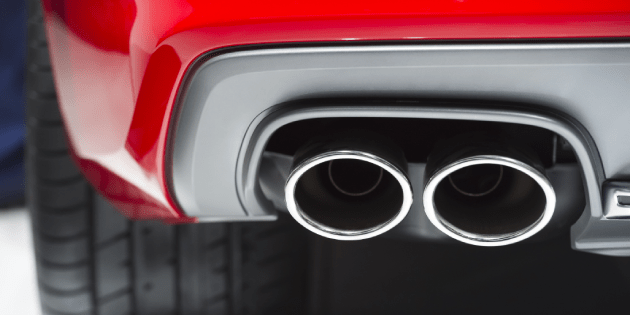
On the first day of 2019, a new law went into effect in California. It changes the way police officers are able to respond to noise violations. Many Californians are very upset about the law, particularly those in the vehicle enthusiast community, because they see it as a threat to their passion. California Assembly Bill 1824 seeks to make it easier for police officers to ticket drivers for loud exhaust pipes. But what exactly does the law change? And how will it affect people involved in vehicle modification and the car community?
Before the bill went into motion, the police could still pull you over for having a loud exhaust. In fact, California is notoriously harsh when it comes to loud exhaust fines and tickets. However, this law would make the penalties harsher. Instead of getting what’s called a “fix-it ticket”, which basically acts as a slap on the wrist saying to get the problem fixed, drivers will not receive a violation on the spot with no chance to prove they fixed the problem.
When it comes to the legality of your exhaust pipe, there are two things the state of California looks for. The first is how loud your exhaust is. The louder it is, the more likely it is that you’re going to get a ticket. The second thing that’s taken into consideration is how much your exhaust pollutes. Again, the more pollution you create, the more likely it is that you’ll be ticketed. The main reasoning for this is because noise is a nuisance and pollution is a safety and environmental concern. The current law states that your vehicle has to be below the noise limit at a distance of 50 feet from the centerline of travel, and it also states that you need some kind of muffler. So, the combination of all these factors creates the guides by which legality is determined. However, the main indication of noisiness is whether or not the noise exceeds 95 dB.
Essentially, it comes down to the officer who pulls you over. If they believe it’s too loud, based on their experience, they can and probably will ticket you. However, the technical definition under the California Vehicle Code says that SAE J1169 is the standard of measurement. That means that you have to test the decibel level when the vehicle is running at a consistent RPM. However, the exact methodology is difficult to find information about, which leads many to believe that the law is unfair at worst and ambiguous at best. That being said, 95 dB is pretty loud. If you were working around 85 dB for your job, OSHA would require you to wear hearing protection. If you listened to a jet plane taking off from a distance of 82 feet, it would be about 150 dB, so even though some would prefer a very specific test, 95 dB is loud enough that most people would say it was very loud.
Just because you have a modified or aftermarket exhaust doesn’t necessarily mean that your exhaust is illegal. However, if you suspect that yours might be, it’s best to get it checked out at an auto shop. You can ask them to test your vehicle to see how loud it is and whether or not it meets the legal requirements. If it’s too loud or pollutes too much, then you can have them fix it.
If you’ve been accused of or charged with having an illegal exhaust, it’s important to consult a qualified traffic attorney. Only an experienced attorney can help you navigate the legal waters and obtain the most beneficial results for you. A qualified California traffic lawyer can help you fight your case, mitigate the penalties you might face, and be your best advocate. Be sure to contact a California traffic attorney today and obtain the representation you deserve.
Ticket Void is a web service that can help you find an experienced lawyer for Driving Under the Influence (DUI), Driving While Intoxicated (DWI), speeding tickets, careless driving, license plate violations, and other serious traffic violations. Ticket Void expedites your legal search for experienced and reliable DUI and traffic ticket lawyers.
All Right Reserved to Copyright © 2010 – 2025
| Cookie | Duration | Description |
|---|---|---|
| cookielawinfo-checkbox-analytics | 11 months | This cookie is set by GDPR Cookie Consent plugin. The cookie is used to store the user consent for the cookies in the category "Analytics". |
| cookielawinfo-checkbox-functional | 11 months | The cookie is set by GDPR cookie consent to record the user consent for the cookies in the category "Functional". |
| cookielawinfo-checkbox-necessary | 11 months | This cookie is set by GDPR Cookie Consent plugin. The cookies is used to store the user consent for the cookies in the category "Necessary". |
| cookielawinfo-checkbox-others | 11 months | This cookie is set by GDPR Cookie Consent plugin. The cookie is used to store the user consent for the cookies in the category "Other. |
| cookielawinfo-checkbox-performance | 11 months | This cookie is set by GDPR Cookie Consent plugin. The cookie is used to store the user consent for the cookies in the category "Performance". |
| viewed_cookie_policy | 11 months | The cookie is set by the GDPR Cookie Consent plugin and is used to store whether or not user has consented to the use of cookies. It does not store any personal data. |